Aussie mortgage holders breathe sigh of relief
The typical Australian mortgage holder has experienced a massive rise in mortgage payments following the Reserve Bank of Australia’s (RBA) monetary tightening cycle, beginning in May 2022.
As illustrated by the following chart from Westpac, the average minimum mortgage repayment in Australia rose from around $1,800 before the first rate hike to a peak of around $2,750:
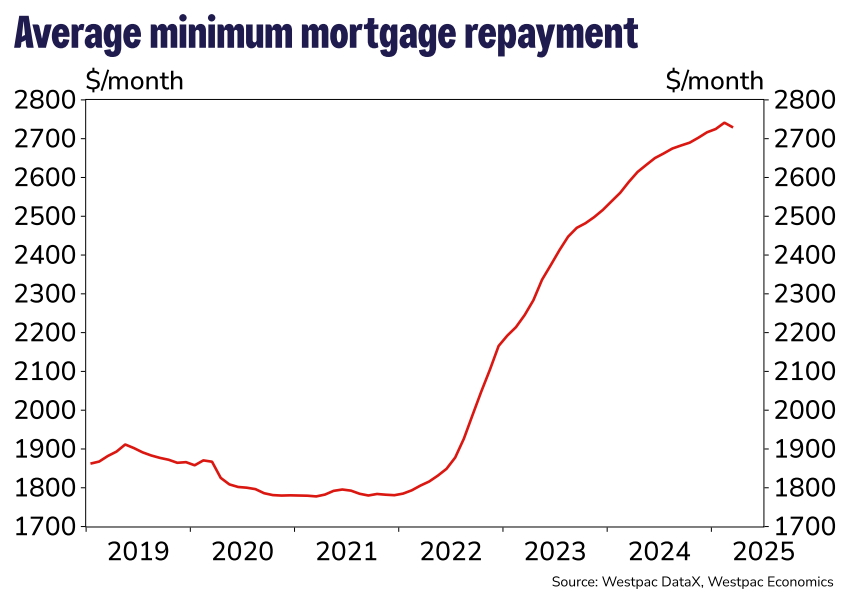
The share of income required to service a new mortgage also hit a record high of 50.6% at the end of 2024, according to CoreLogic (now Cotality):
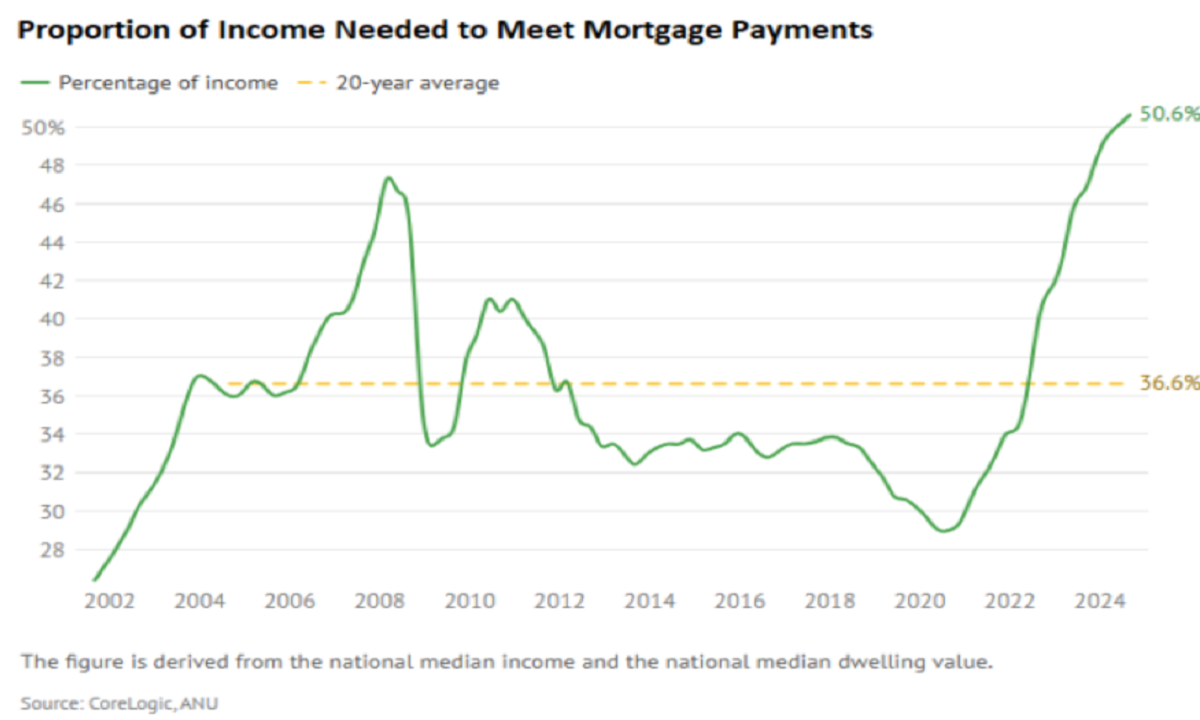
The good news is that the RBA has cut the official cash rate two times, by a cumulative 0.5%. Financial markets also expect the RBA to cut rates a further three times in 2025, to 3.10% at year’s end.
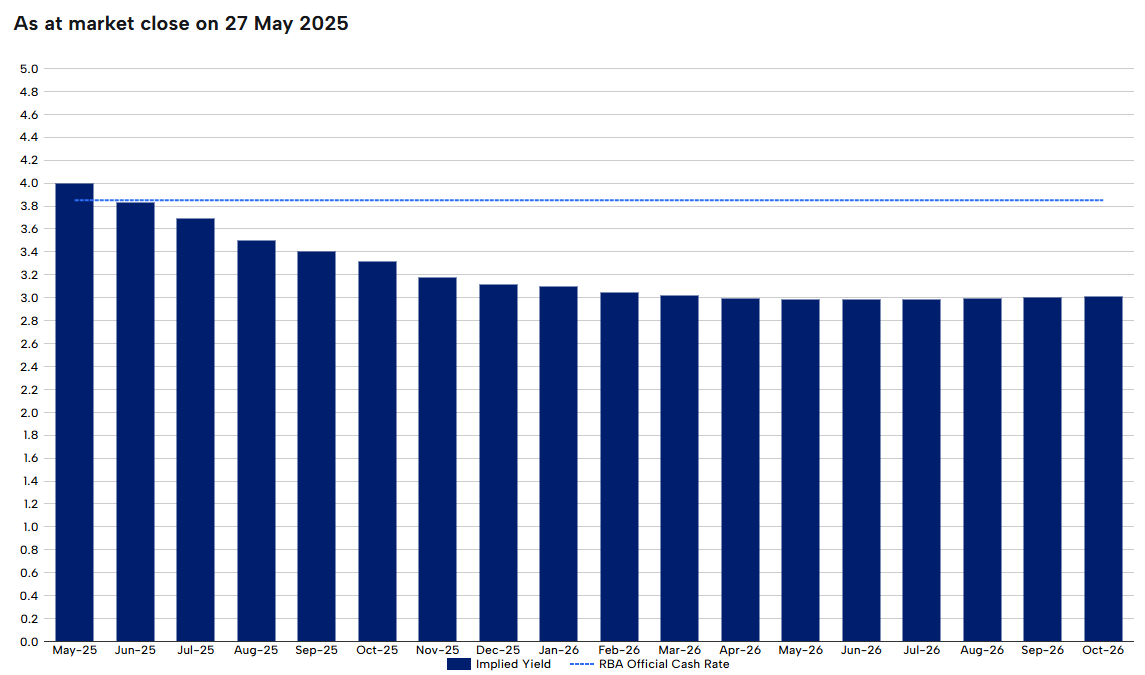
The two rate cuts to date and the prospect of more have greatly reduced mortgage stress across Australia.
According to Roy Morgan, mortgage stress peaked in June 2024 when 30.3% of owner-occupied mortgage holders were deemed to be in stress.
Lower interest rates, combined with income growth, reduced mortgage stress to 26.5% of mortgage holders in April.
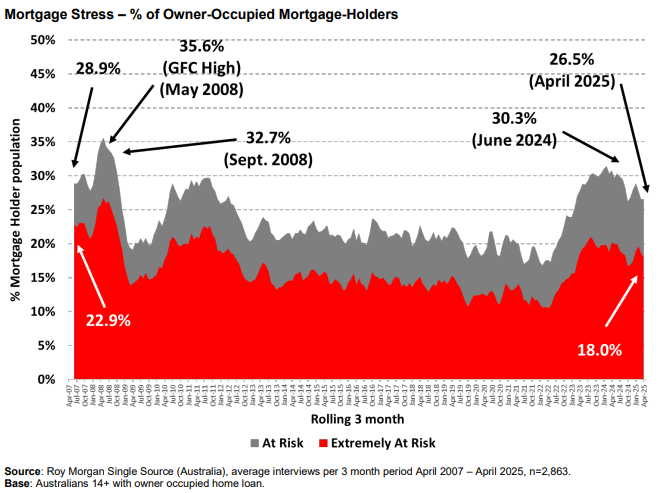
Roy Morgan forecasts that last week’s 0.25% reduction in the official cash rate by the RBA will reduce mortgage stress to 26.0% of mortgage holders by June, which will fall again to 24.7% of mortgage holders in July if the RBA cuts rates again by 0.25%.
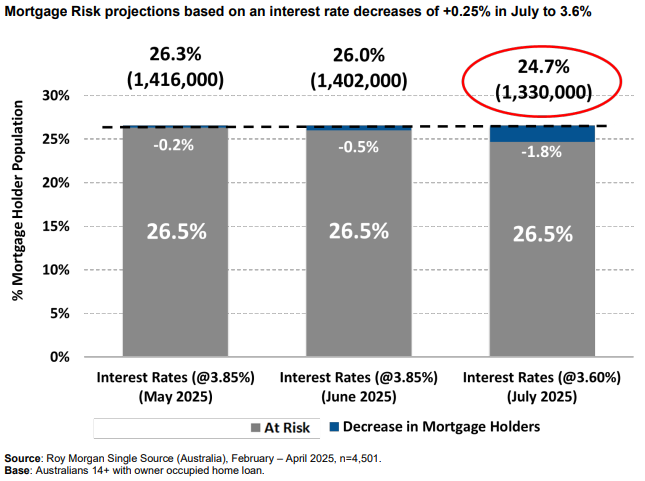
Michele Levine, CEO Roy Morgan, noted that “despite the RBA cutting interest rates this year, mortgage stress is still significantly higher than before the RBA began raising interest rates in May 2022”.
“There are over 600,000 more mortgage holders ‘At Risk’ of mortgage stress today than there were in May 2022, and even an interest rate cut in July will still leave this figure elevated by around 520,000”.
Even so, as interest rates are cut, the prevalence of mortgage stress will fall.
